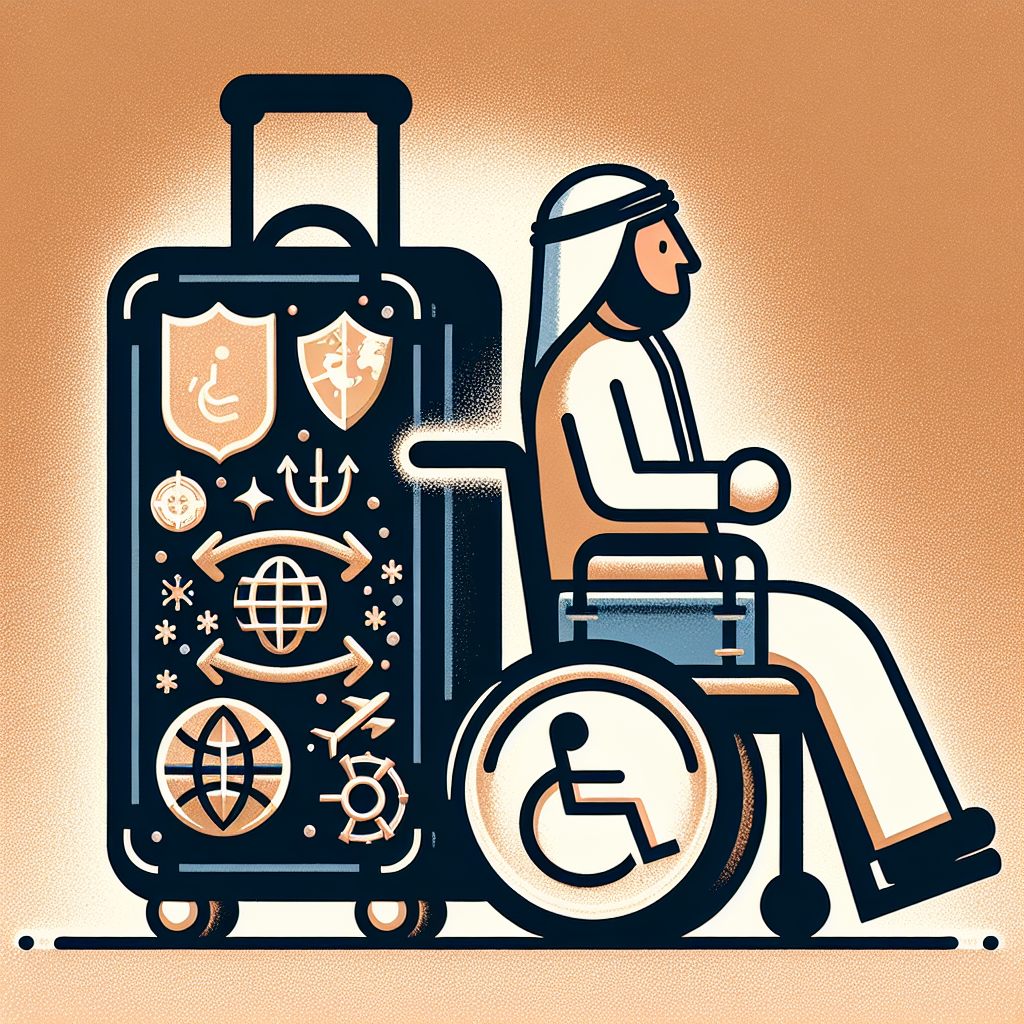Filed under Travel Insurance on
Senior Travel Medical Insurance: What You Need to Know

When golden years arrive, and the desire to explore the world is stronger than ever, senior citizens often find themselves excitedly planning trips to exotic destinations, visiting long-lost relatives, or simply embarking on a rejuvenating getaway. However, amidst the excitement of travel, one critical aspect should never be overlooked: senior travel medical insurance. As adventurous as globe-trotting may be, it carries its share of risks, and medical emergencies abroad can easily derail even the most carefully planned itinerary.
Understanding Senior Travel Medical Insurance
Senior travel medical insurance is a specialized type of coverage designed specifically for the unique needs and challenges faced by older travelers. As we age, the probability of unexpected health issues tends to rise, and the cost of medical care abroad can be exorbitant. Therefore, having the right insurance coverage is crucial to ensuring peace of mind and financial security while exploring new horizons.
Why Is It Necessary?
The necessity of senior travel medical insurance cannot be overstated. Older adults are more susceptible to health problems such as chronic conditions, unexpected illness, or accidents. In countries where medical care is costly, an unforeseen incident can lead to staggering expenses. For example, a vacationer with a heart condition might encounter trouble and need immediate assistance. Without adequate coverage, the cost of treatment and potential repatriation can quickly escalate, potentially leading to financial strain.
What Does It Typically Cover?
Senior travel medical insurance typically covers a range of essential elements, including but not limited to:
- Emergency Medical Expenses: Coverage for unforeseen illnesses or injuries that require urgent medical attention.
- Medical Evacuation and Repatriation: In the event of a severe medical emergency, insurance may cover the costs associated with transportation back to the policyholder's home country for treatment.
- Trip Cancellation and Interruption: Coverage for costs incurred due to canceling or cutting the trip short because of medical emergencies.
- Baggage Loss and Delay: Compensation for lost or delayed luggage.
- Pre-existing Conditions: Some policies may offer partial or complete coverage for pre-existing health conditions.
Choosing the Right Policy
Selecting the right senior travel medical insurance policy involves several important considerations. Here are some steps to guide the process:
- Assess Your Health Needs: Consider your medical history and current health condition. If you have pre-existing conditions, ensure that the policy provides adequate coverage.
- Compare Plans: Research and compare different insurance providers and plans to find one that aligns with your needs and budget. Websites can be helpful in offering side-by-side comparisons.
- Check the Coverage Limits: Verify the coverage limits for medical expenses, cancellations, and other areas of concern to ensure they meet your expectations.
- Read the Fine Print: Understand the policy details, including any exclusions or conditions that might affect coverage.
- Consult an Insurance Advisor: If you're unsure of the best option, consult an insurance advisor or broker specializing in travel insurance for guidance.
Real-Life Example
Consider the case of Mr. and Mrs. Johnson, a retired couple from Florida who decided to take a month-long tour across Europe. Well into their trip, Mrs. Johnson suffered a fall while sightseeing in France, fracturing her hip. Thanks to their comprehensive senior travel medical insurance policy, they received excellent medical care without the burden of hefty medical bills. The insurance even covered Mr. Johnson’s hotel extension and assisted in arranging for Mrs. Johnson’s comfortable return home once she was fit to travel. This unfortunate incident served as a valuable lesson for them about the importance of having the right coverage.
Common Mistakes to Avoid
While navigating the world of senior travel medical insurance, some common mistakes can leave travelers vulnerable:
- Ignoring Pre-existing Conditions: Some travelers may overlook disclosing pre-existing conditions, which could result in denied claims. It's vital to be upfront with your insurance provider about any such conditions.
- Opting for the Cheapest Policy: While saving money is important, choosing the cheapest policy might sacrifice necessary coverage. It’s essential to strike a balance between cost and coverage.
- Last-Minute Purchases: Buying insurance at the last minute may lead to missing out on crucial coverage benefits, especially those related to trip cancellation and pre-trip medical arrangements.
- Misunderstanding Policy Details: Misinterpretation of policy inclusions and exclusions can lead to unexpected out-of-pocket expenses. Always read the policy thoroughly and ask questions if in doubt.
Practical Advice for Seniors
Plan Ahead
The key to a successful trip is ample preparation. Start planning your travel insurance well in advance to ensure you have adequate time to thoroughly research and select the best policy.
Keep Documentation Handy
Always carry a copy of your insurance policy and contact information for emergency assistance. Many policies provide a 24/7 helpline for policyholders, which can be a lifeline in times of crisis.
Stay Informed About Local Healthcare
Familiarize yourself with the healthcare facilities available at your destination. Knowing where to go in case of an emergency can save valuable time and effort.
Manage Any Medications
If you take prescription medications, make sure you have an ample supply for the duration of your trip. Additionally, carry copies of prescriptions and a note from your doctor explaining any medical equipment you might be traveling with.
FAQs
- Q1: What is the age limit for senior travel medical insurance?
A: Most insurance companies provide coverage for travelers up to the age of 85. However, policies and benefits may vary, so it’s vital to review specific age-related terms with the provider. - Q2: Can I get coverage for pre-existing medical conditions?
A: Some policies offer coverage for pre-existing conditions, although this may come at a higher premium or with specific limitations. Always confirm with your insurer about any conditions you have and compare plans accordingly. - Q3: Is travel insurance necessary for domestic trips?
A: Travel insurance can be beneficial even for domestic trips, particularly if you will be away from your usual healthcare providers, engaging in activities that carry risks, or if the trip requires a significant financial investment. - Q4: What if my travel plans change due to COVID-19?
A: Many insurance providers now include clauses covering COVID-19-related interruptions. Check with your insurer to see if your policy includes coverage for pandemic-related illness or changes to travel plans. - Q5: How do I make a claim if I need medical assistance abroad?
A: In the event of a medical emergency, contact the insurer’s emergency assistance line as soon as possible. They will guide you through the process of obtaining the needed care and filing a claim for reimbursement.
Embarking on new adventures in retirement is an exciting venture, but it’s imperative to recognize the importance of senior travel medical insurance. By planning and equipping yourself with the right coverage, you can ensure your travels are as enjoyable and stress-free as you deserve them to be.





